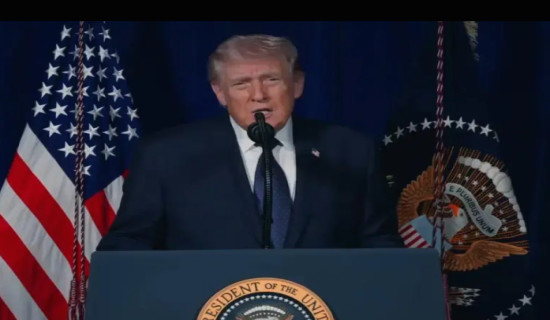- Monday, 2 March 2026
The Triumph Of Indian Democracy
The recently concluded elections of 2024 in India clearly indicate that the people of a country with democratic values ingrained through several revolts against suppression have the strength to defy any form of oppression time after time. The outcome of this election is more a victory for the Bharatiya Janata Party (BJP) and not for Narendra Modi, who has often been portrayed as the brand ambassador of the BJP. Modi, as expected, is back as the PM of India for the third time. He has made history, but not as expected. His victory was anticipated to come with an overwhelming majority, but with the winds blowing against him in recent months, the electorate changed that and gave him the government but with a stronger opposition.
A series of speeches and remarks made by him invoked the people to revolt and support his opposition in places where there were speculations that the BJP would win. This led to an increase in seats for the opposition, making their presence in parliament stronger than in the last two terms. In a democracy, a strong opposition is as important as a corruption-free government that can drive the country and the electorate towards development. The Indian people have sent a message to politicians and the private sector. Indian political leaders and the ever-growing industry and business tycoons need to unpack this message and ensure that the country's progress benefits every citizen, not just a small percentage of the population or one religion.
Fastest growing economy
As one of the fastest-growing economies, India should also consider the economic growth and progress of its neighbours to establish regional stability. However, looking at the swearing-in of the third Modi government, it seems both the foreign policy and inclusive strategy of India need improvement. The list of ministers sworn in doesn’t look very inclusive, with just one Cabinet and one State female ministers. On the other hand, the omission of Pakistan from the invitees list goes against the openness that India is expected to have.
A robust and vigilant opposition can enforce checks and balances on the government. The most important task is to provide more space for civil society to raise their voices for the rights of the people and for the press to exercise their freedom without being influenced by business tycoons or protected by the government.
During the last two terms when the BJP-led coalition ruled, it was observed that civil society space was shrinking and press freedom was under attack. In the recently concluded election, the Indian electorate sent several messages that both the Modi-led government and the opposition need to reflect on carefully. A majority of the Uttar Pradesh votes were expected to go to the BJP, but in contrast, the Samajwadi Party (SP),, led by Akhilesh Yadav with his Pichhre (backward), Dalit, and Alpasankhyak (minorities) (PDA) campaign emerged victorious. This proved that the BJP or any other political party should not take for granted that the people will be swayed without considering what they want for their future.
The fanfare conducted by the Modi government during the consecration of a Ram Temple in Ayodhya, led by the PM of one of the biggest secular democratic countries on earth, actually went against their election campaign. It succeeded in doing a reality check where the people were awakened, resulting in poor election results in UP and losing the seat in the constituency where the Ram Temple is located. This clearly shows that voters can distinguish between their religious beliefs and political choices.
India is a country with diversity that suits its humongous population. Language, culture, tradition, and religion are as varied as their geography and terrain. The fact that the BJP increased seats in South India and opened an account in Kerala also gives the message that the Indian people, from the north to the tip at Kanyakumari, respect diversity and want to progress in union. This year’s election results in South India conveyed that although regional and language issues are very important to them, they can rise above that to have a more inclusive political landscape.
These are just a few snippets of the 2024 Indian elections that need to be reflected on by the BJP, the National India Congress and other political parties and leaders. It is also an interesting coincidence that in Nepal, the first political party given the chance to rule the country after the restoration of democracy in 1990, has fallen back a lot in the people's respect. After several rounds of forming and breaking governments, the political parties and their leaders have been questioned by the people on why they have not been able to rise above their petty personal and party interests.
Self-assumed declarations
Political parties and leaders, no matter where they are from, Nepal or India, need to remember just one basic fact: they are where they are because of their electorates, to develop their nation and to make provisions for all citizens to live a life of dignity. The BJP now needs to seriously reflect on the series of self-assumed declarations and remarks they made, assuming certain leaders could be gods and that the people would give them votes no matter what they said or did.
During the last two terms, it was seen that mostly Modi and his Home Minister Amit Shah ran the government and party. It is now important to ensure that other leaders within the BJP have a say and move towards a strategy with their coalition partners not only for the proper development of India but also to pave paths for major improvements in foreign policy in South Asia.
(Sharma is a senior journalist and women's rights advocate. namrata1964@yahoo.com. Twitter handle: @NamrataSharmaP)
















